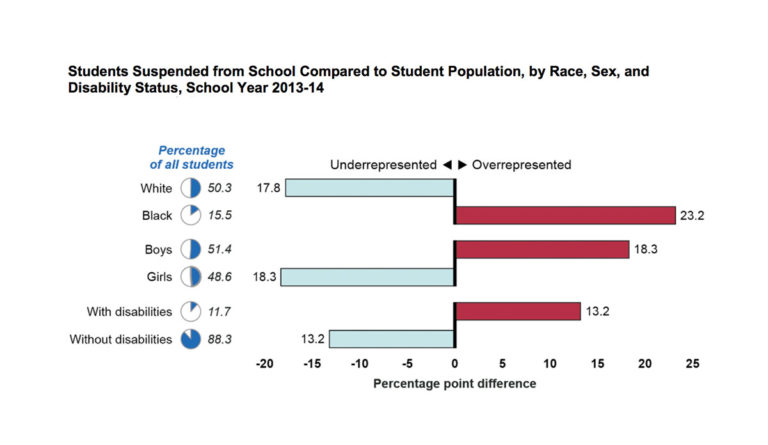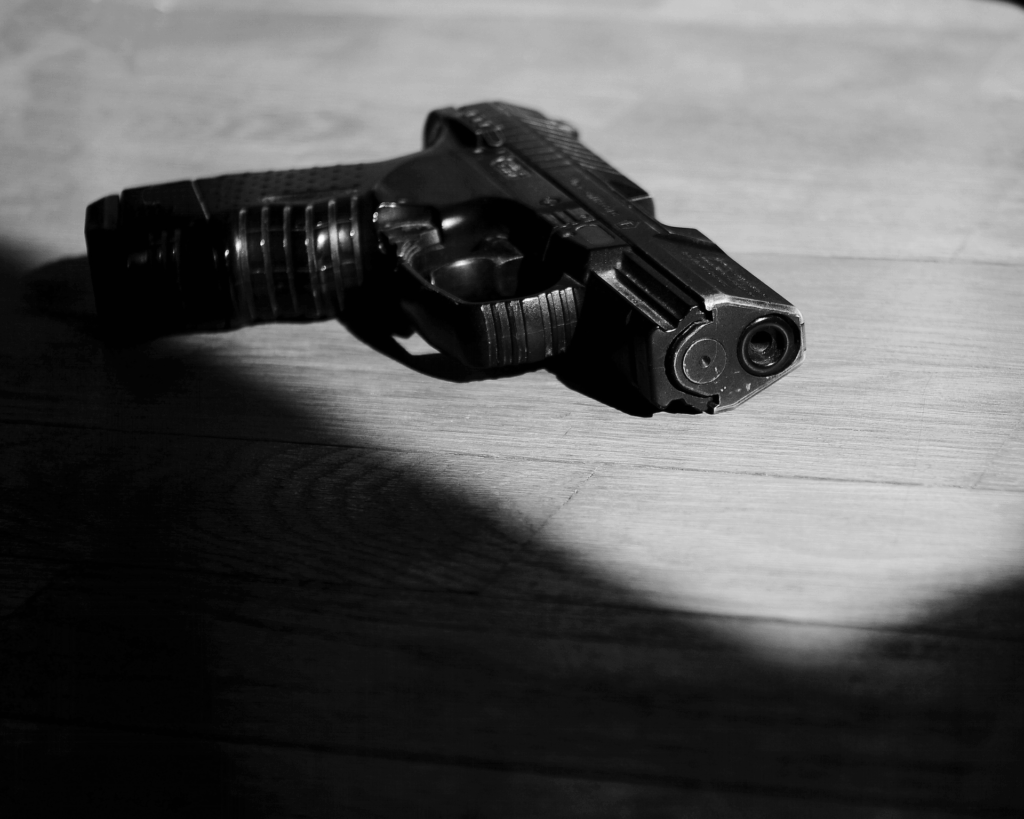Out of School, Out of Luck
School suspension is linked to lower grades, increased expulsions, and increased risk of incarceration. Disciplinary actions are often distributed unequally, based on gender, race, and personal ability.

Read Time: 2 minutes
Published:
Out-of-school suspension is linked to lower grades, increased expulsions, and increased risk of incarceration. Disciplinary actions are often distributed unequally, based on gender, race, and personal ability. At the request of Congress, the US Government Accountability Office (GAO) reviewed disciplinary patterns across schools. They found that Black students, boys, and students with disabilities are punished more frequently than other K-12 public school students.
As shown in the Figure, although Black students account for only 15.5% of the K-12 student population, they make up 39% of the nation’s suspensions. Boys are also overrepresented in out-of-school suspensions, as are students living with a disability.
Disciplinary action through suspension is centered around a student’s behavior, which is often influenced by myriad complex social challenges such as poverty, mental illness, and lack of parental support. Most suspensions result from multiple school absences and tardy reports which are commonly linked to difficult family situations. Chronic tardiness most affects low-income students, who often care for younger siblings or work to support their family. Furthermore, teachers’ implicit biases harbored in race and gender stereotypes also contribute to the harshness of punishment delegated. Research shows that students of color suffer from harsher disciplinary outcomes from White teachers than teachers of the same race .
Suspension as a form of punishment starts as early as preschool, where boys and black students make up the majority of suspension cases. Several school officials interviewed by the GAO reported trying to move away from disciplinary actions that remove children from the classroom, which interrupt academic achievement. Between 2016 -2017, seventeen states enacted legislation to restrict and reduce the number of out-of-school suspensions and expulsions. An elementary school official in Georgia reported that they no longer discipline based on tardiness.
Schools in Massachusetts are attempting to collaborate with mental health professionals and social workers to support students undergoing traumatic experiences. Districts in Texas and Massachusetts have introduced “personal break rooms” where children can calm down and redirect their emotions after a frustrating incident.
Databyte via K-12 Education Discipline Disparities for Black Students, Boys, and Students with Disabilities. United States Government Accountability Office Report to Congressional Requesters.



